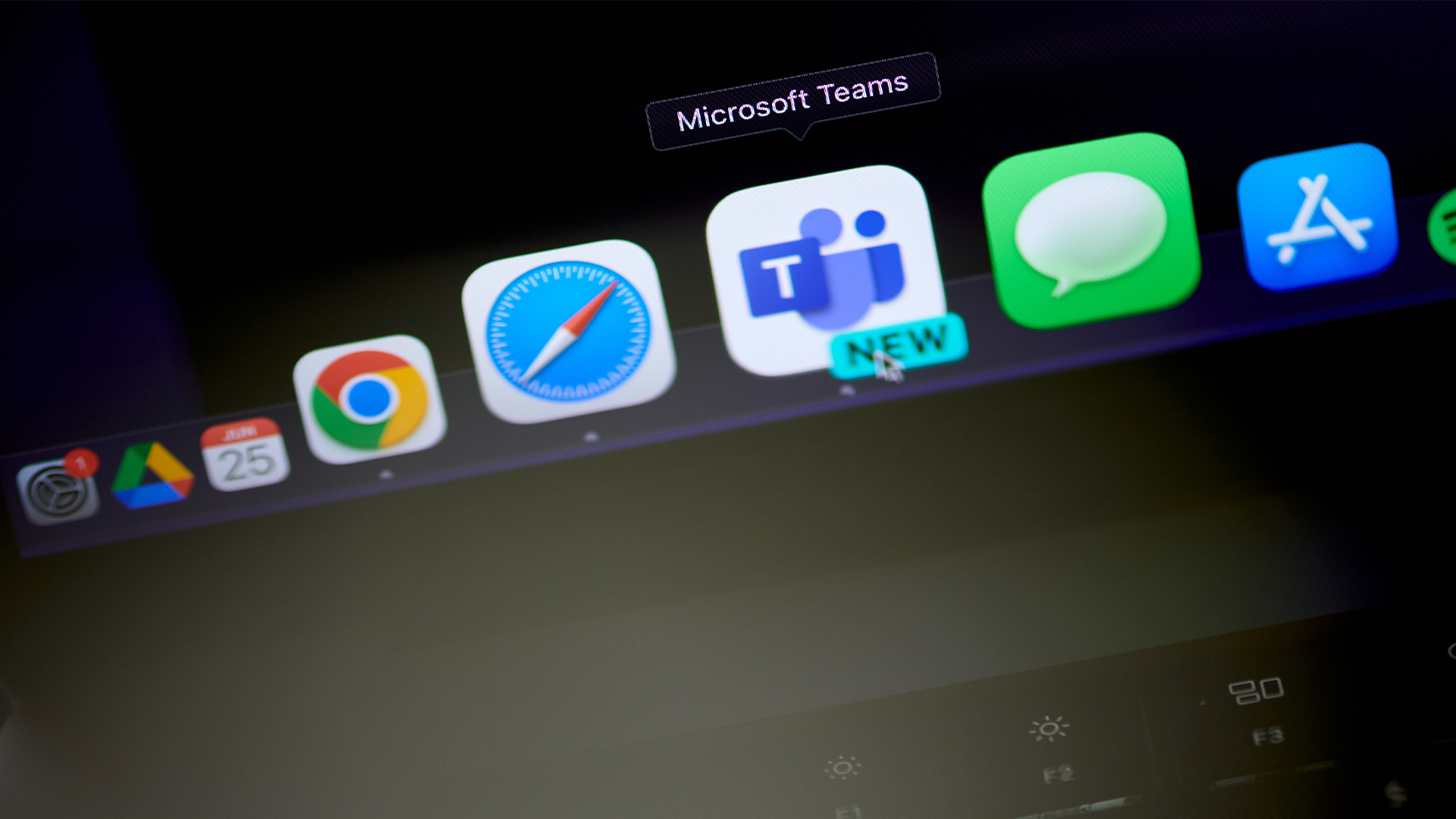Serious flaws in Microsoft apps on macOS could let hackers spy on users
The security firm said attackers could bypass permissions for Microsoft apps on macOS and gain privileges without verification


Researchers at Cisco Talos have uncovered serious vulnerabilities in Microsoft applications for the macOS operating system that could allow attackers to misuse permissions.
The vulnerabilities can be exploited by injecting malicious libraries into Microsoft applications to gain entitlements and user-granted permissions.
These permissions control whether an app can access resources such as the microphone, camera, folders, screen recording, user input and more, allowing attackers to spy on the user or steal sensitive information.
"We identified eight vulnerabilities in various Microsoft applications for macOS, through which an attacker could bypass the operating system’s permission model by using existing app permissions without prompting the user for any additional verification,” researchers said.
“If successful, the adversary could gain any privileges already granted to the affected Microsoft applications. Microsoft considers these issues low risk, and some of their applications need to allow loading of unsigned libraries to support plugins and have declined to fix the issues."
Apple's macOS features a layered security model, including Transparency Consent and Control (TCC) – a framework developed by Apple to manage access to personal data and system privileges, requiring explicit user approval before granting access.
However, this isn’t foolproof, researchers warned. It depends on applications responsibly handling the permissions they receive. If a trusted application is compromised, it could be manipulated to abuse its permissions, allowing attackers to perform actions without user knowledge.
Sign up today and you will receive a free copy of our Future Focus 2025 report - the leading guidance on AI, cybersecurity and other IT challenges as per 700+ senior executives
"For instance, if a video chat app with camera and microphone access is exploited, it could be forced to record without alerting the user," Cisco Talos said.
"This situation points to a key aspect: macOS trusts applications to self-police their permissions. A failure in this responsibility leads to a breach of the entire permission model, with applications inadvertently acting as proxies for unauthorized actions, circumventing TCC and compromising the system's security model."
As an example, Cisco Talos used Microsoft apps, each of which had hardened runtime enabled, together with the ‘com.apple.security.cs.disable-library-validation’ entitlement.
RELATED WHITEPAPER

Of the eight applications it reported, four were updated by Microsoft and no longer possess the 'com.apple.security.cs.disable-library-validation' entitlement.
These included: Microsoft Teams, WebView.app (Microsoft Teams helper), com.microsoft.teams2.modulehost.app helper, now renamed Microsoft Teams ModuleHost.app, and Microsoft OneNote.
However, Microsoft Excel, Outlook, PowerPoint, and Word all remain vulnerable.
Microsoft appears to use the ‘com.apple.security.cs.disable-library-validation’ entitlement for certain apps to support certain plug-ins. According to Apple, this allows the loading of plug-ins signed by third-party developers.
Despite this, the only plug-ins available to Microsoft's macOS apps appear to be web-based and known as Office add-ins.
"If this understanding is correct, it raises questions about the necessity of disabling library validation, especially if no additional libraries are expected to be loaded. By using this entitlement, Microsoft is circumventing the safeguards offered by the hardened runtime, potentially exposing its users to unnecessary risks," Cisco Talos said.
"It's also important to mention that it’s unclear how to securely handle such plug-ins within macOS' current framework. Notarization of third-party plug-ins is an option, albeit a complex one, and it would require Microsoft or Apple to sign third-party modules after verifying their security."
The company recommends Apple should introduce a user prompt, similar to the resource permissions in TCC, enabling users to decide whether to load a specific third-party plug-in.
This, it said, would provide a more controlled means of granting access without broadly compromising security.
Emma Woollacott is a freelance journalist writing for publications including the BBC, Private Eye, Forbes, Raconteur and specialist technology titles.
-
 Will autonomous robotics leap forward in 2026?
Will autonomous robotics leap forward in 2026?In-depth Connectivity and cost benefits remain barriers, despite breakthroughs in physical AI
-
 AWS and NTT Data team up to drive legacy IT modernization in Europe
AWS and NTT Data team up to drive legacy IT modernization in EuropeNews Partnership between AWS and NTT DATA aims to boost AWS European Sovereign Cloud capabilities
-
 Thousands of Microsoft Teams users are being targeted in a new phishing campaign
Thousands of Microsoft Teams users are being targeted in a new phishing campaignNews Microsoft Teams users should be on the alert, according to researchers at Check Point
-
 Microsoft warns of rising AitM phishing attacks on energy sector
Microsoft warns of rising AitM phishing attacks on energy sectorNews The campaign abused SharePoint file sharing services to deliver phishing payloads and altered inbox rules to maintain persistence
-
 Microsoft just took down notorious cyber crime marketplace RedVDS – and found hackers were using ChatGPT and its own Copilot tool to wage attacks
Microsoft just took down notorious cyber crime marketplace RedVDS – and found hackers were using ChatGPT and its own Copilot tool to wage attacksNews Microsoft worked closely with law enforcement to take down the notorious RedVDS cyber crime service – and found tools like ChatGPT and its own Copilot were being used by hackers.
-
 These Microsoft Teams security features will be turned on by default this month – here's what admins need to know
These Microsoft Teams security features will be turned on by default this month – here's what admins need to knowNews From 12 January, weaponizable file type protection, malicious URL detection, and a system for reporting false positives will all be automatically activated.
-
 Everything you need to know about Google and Apple’s emergency zero-day patches
Everything you need to know about Google and Apple’s emergency zero-day patchesNews A serious zero-day bug was spotted in Chrome systems that impacts Apple users too, forcing both companies to issue emergency patches
-
 The Microsoft bug bounty program just got a big update — and even applies to third-party code
The Microsoft bug bounty program just got a big update — and even applies to third-party codeNews Microsoft is expanding its bug bounty program to cover all of its products, even those that haven't previously been covered by a bounty before and even third-party code.
-
 Microsoft Teams is getting a new location tracking feature that lets bosses snoop on staff – research shows it could cause workforce pushback
Microsoft Teams is getting a new location tracking feature that lets bosses snoop on staff – research shows it could cause workforce pushbackNews A new location tracking feature in Microsoft Teams will make it easier to keep tabs on your colleague's activities – and for your boss to know exactly where you are.
-
 Microsoft opens up Entra Agent ID preview with new AI features
Microsoft opens up Entra Agent ID preview with new AI featuresNews Microsoft Entra Agent ID aims to help manage influx of AI agents using existing tools
